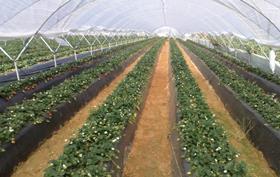
Freshfel Europe, the European Fresh Produce Association, has welcomed the European Commission’s recently published Farm to Fork Strategy, which forms part of the European Green Deal and aims to facilitate the distribution of healthy, affordable food in Europe.
However, the association expressed doubt at the long-term practical viability of some of the proposed measures, as well as their impact on the competitiveness of the sector and its ability to continue “to seek and achieve further long-term sustainability through circular practices and business operations”.
“Freshfel Europe supports the scope of the Farm to Fork Strategy, which covers every step in the food supply chain from production to consumption,” Freshfel Europe stated. “Representing the entire European fresh fruit and vegetable supply chain, Freshfel Europe actively promotes action at each stage of the chain and cooperation between actors in the chain for effective collective action. Widespread action and change in this manner and as promoted in the Strategy is essential for systemic long-term change in the agri-food sector.”
Freshfel Europe stressed the low environmental impact of fruit and vegetable production in relation to other agri-food sectors, as well as the sustainable business models that have been pioneered by the fruit and vegetables supply chain.
“But while the sector is continually investing in solutions to cope with emerging challenges linked to sustainability concerns, these efforts are often hampered by regulatory demands,” the association's statement warned. “Freshfel Europe would like to underline that the Farm to Fork Strategy’s initiatives should not impede efforts by the sector to advance sustainability through different business models.”
Freshfel Europe called for upcoming debates on the Strategy’s proposed initiatives to recognise that existing practices like Integrated Pest Management (IPM) and reduced use of plant protection products were already being successfully implemented to reach many of the Farm to Fork Strategy’s objectives.
The association also lamented the omission of “concrete initiatives to support increased consumption to boost the health of Europe’s citizens”.
Freshfel cited the Commission’s own report: “The Farm to Fork Strategy acknowledges that […] moving towards a plant-based diet ‘with more fruits and vegetables will reduce not only risks of life-threatening diseases, but also the environmental impact of the food system’. This objective, however, is not supported by regulatory and non-regulatory initiatives in the Strategy.”
Instead, it fears that new constraints on production, including reduction of fertiliser and plant protection product use by 20 and 50 per cent respectively, will result in additional costs for growers and affect the competitiveness of the sector in relation to non-EU suppliers.
“To avoid market distortion and unfair competition, production standards and rules must be taken into account in any proposals,” Freshfel advised. “Likewise stricter rules on imports into the EU may additionally result in food security issues as these third country suppliers may divert exports to more attractive and less demanding global markets.”
In the wake of the Covid-19 crisis, Freshfel also recommended that the resilience of the fresh fruit and vegetable sector be considered in terms of the global outlook. “Covid-19 will likely cause a downturn in the global economy, which will hamper both the sector’s ability to take on new costs and affect consumers’ purchasing power for more costly products,” it stated.
“The Farm To Fork Strategy must have a holistic view and take overall production environmental performance into account, which should not be disregarded in preference for organic,” stated Freshfel Europe general delegate Philippe Binard. “Measures such as Integrated Pest Management often have greater environmental benefits.”
“The fresh fruit and vegetable sector’s ability to provide high-quality, safe, nutritious and affordable food to consumers and adequate return for growers should not be compromised,” Binard continued. “Effective alternative tools must be provided for growers to cope with invasive species and plant diseases if plant protection product use is to be reduced.”



